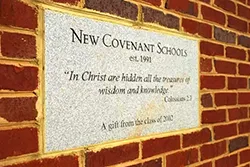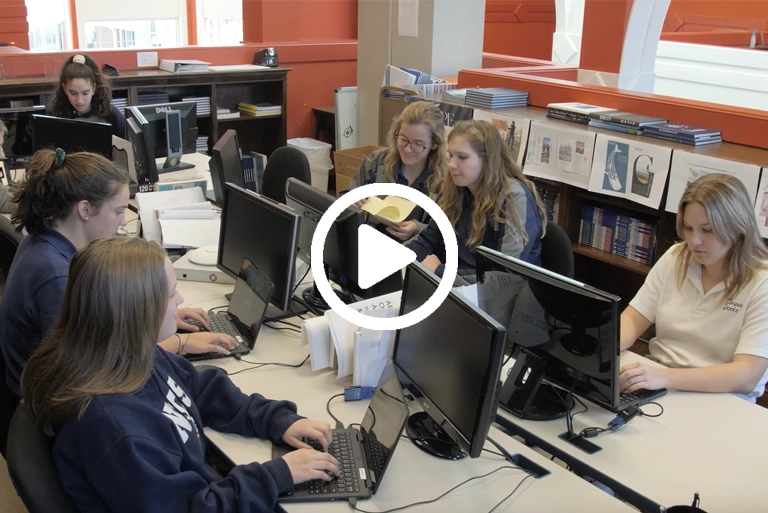New Covenant operates on what we call the Continuous Enrollment Contract. This means that your child’s seat is protected and your child is automatically advanced to the next grade each year unless you opt out by the deadline. This practice saves headaches for parents and streamlines the process, which reduces the time and attention you need to give to it.
This article is intended to call attention to several factors that all parents should consider at this time. We know that every family must evaluate their child’s progress each year, and the continuous enrollment contract doesn’t mean we take your family for granted. We have to earn your commitment every day.
First, we know that no school should assume that its K12 program is a perfect fit at every grade and every level. There may be very compelling reasons to make a change at a given point. My staff and I welcome conversations when a student’s best interest is in question, and where another option might make the child more successful. Families who move away, of course, must make a change no matter what, and “move-away’s” account for about a third to half of New Covenant’s attrition.
Second, we know from our educational consultants that, nationwide in all private schools, students on average have more input into the decision than children of other generations. Today, students pressure their parents starting in the 5th grade, and many are given nearly complete control of the decision before the end of middle school. This represents a serious abdication of parental guidance. While all students have definite opinions about the school of their family’s choice, no ten or twelve year-old should be permitted to make that choice. School opportunities are not equal and they simply do not have the understanding, wisdom or maturity to evaluate a school, its opportunities, or to measure its long-term impact on their lives.
Part of the pressure parents may feel are the all-too-natural complaints of middle school students about anything they perceive as negative in their daily school experience. Your teachers know the other side, however, and you owe it to yourself to check in with them. In the overwhelming amount of cases, their students are happy, well-adjusted, and enjoy the company of their friends at school. Takeaway: Filter that talk with your “mom” and “dad” skepticism.
Third, when and if you find yourself engaging with a child who is asking to go elsewhere, consider the following:
-
- Why did you choose New Covenant in the first place? Likely because you perceived value in clear curricular distinctives that are unique and unavailable at any other school in our area. Your youngster is likely unable to grasp this fact.
-
- In considering another school which will be notably different in curriculum, content, and culture, ask yourself what has changed in your thinking such that you would now choose an option that represents something far different from your first choice. I am not suggesting that New Covenant is better (I think it is!) or that others are inferior. My question is that the choices before you are so different that a different decision represents a major shift in thinking. Does a young student understand this?
-
- Is your child able to articulate exactly what he or she is expecting to find in another context? Is it a wider-friend group, athletic opportunities, better academics, stem programs, etc.
-
- Does your child know the unique opportunities he or she will forego by leaving New Covenant’s unique program? It is likely that young students are unaware of the opportunities ahead, especially in the School of Rhetoric, which include a “great ideas” curriculum, foreign study, repeated travel opportunities in our nation’s capital, smaller classes, discussion models, J-Term options, athletics, the arts, and vastly more freedom and responsibility than what is found in schools elsewhere.
Finally, the community in which your children are placed during their formative school years is of the highest importance. Your relationship to us, therefore, is much more than a continuous enrollment contract. It is a participation in a distinct community of shared faith and values, a complex of intangible benefits which are the result of long commitments made by the leadership, faculty and staff of the school. We come to know and love your children almost as much as you do, and we and hold your confidence in us as a sacred trust.
If ever you find yourself considering your options, I would look forward to being a part of that conversation. If you want to read more you can find my longer essay, “10 Things You Should Consider When Choosing a Private School,” here.










































